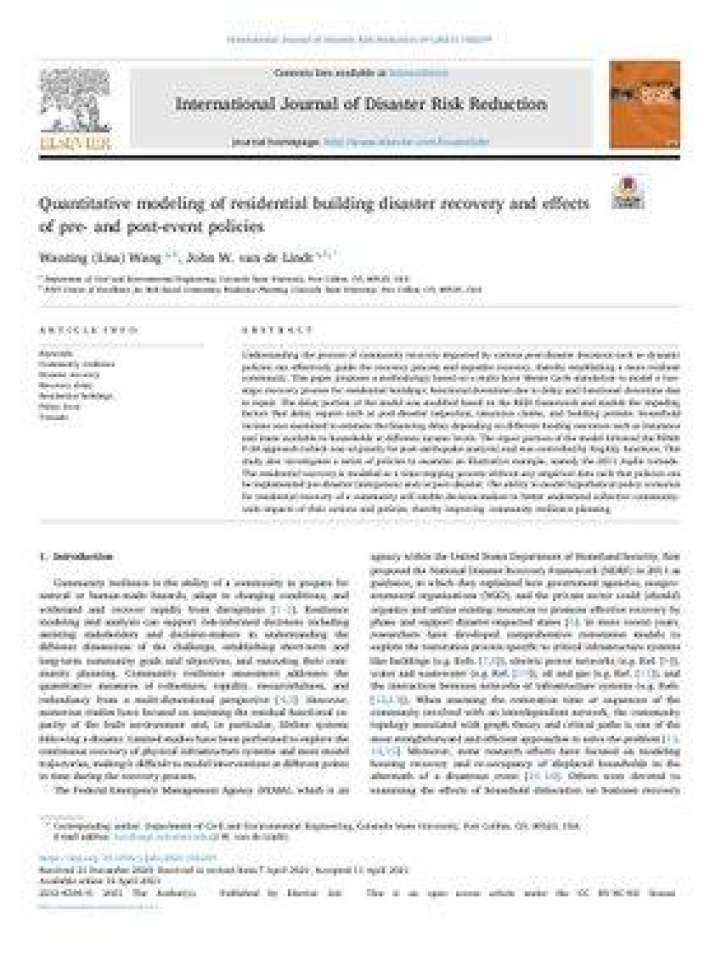Quantitative modeling of residential building disaster recovery and effects of pre- and post-event policies
This paper proposes a methodology based on a multi-layer Monte Carlo simulation to model a two-stage recovery process for residential buildings: functional downtime due to delay and functional downtime due to repair. The delay portion of the model was modified based on the REDi framework and models the impeding factors that delay repairs such as post-disaster inspection, insurance claims, and building permits. Household income was examined to estimate the financing delay depending on different funding resources such as insurance and loans available to households at different income levels.
The repair portion of the model followed the FEMA P-58 approach (which was originally for post-earthquake analysis) and was controlled by fragility functions. This study also investigates a series of policies to examine an illustrative example, namely the 2011 Joplin tornado. The residential recovery is modelled as a time-stepping process without any empirical data such that policies can be implemented pre-disaster (mitigation) and/or post-disaster. The ability to model hypothetical policy scenarios for the residential recovery of a community will enable decision-makers to better understand collective community-wide impacts of their actions and policies, thereby improving community resilience planning.
Explore further
